HOME > Japan SPOTLIGHT > Article
Roundtable on the Future of Japan with 3 Young METI Officials
By Japan SPOTLIGHT
The Ministry of Economy, Trade and Industry (METI), formerly known as the Ministry of International Trade and Industry (MITI), has been playing a pivotal role in strengthening the foundations of Japan's economic progress during the postwar era through its unique capacity to formulate creative policy proposals. Given the transitions in the Japanese economy as well as the unprecedentedly large changes in the global economy, as seen in continuing low growth, geopolitical changes in international politics, and the ongoing Fourth Industrial Revolution, what do young METI officials responsible for the future of the Japanese economy and industries think about these challenges?
Young METI officials published an interesting and stimulating report on the future challenges for Japanese society in May 2017. The report was titled "Anxious Individuals & Governments at a Standstill", and was drafted after spontaneous discussions between then METI Vice Minister Ikuro Sugawara and several young officials. Thus the project is called the "Vice Minister and Young Officials Collaboration Project".
It is rather unusual in a Japanese government office with a hierarchical structure for young officials such as deputy heads or chief staff of a division to have spontaneous free discussions on any policy issue with a vice minister. This unique attempt has drawn much media attention and their report has been looked at by a large number of Japanese on the Internet since its publication. We are thus very happy to introduce the report by way of a roundtable discussion among three young METI officials involved in this project. The subtitle of the report is "How to Live a Proactive Life in an Uncharted Era" and their discussions not only covered the challenging issues we are facing but also possible solutions.

Introductions
JS: Could you please briefly introduce yourself and explain how you got involved in this project?
Hidaka: I am Keigo Hidaka, deputy director of the Service Affairs Policy Division/Education Industry Office of the Commerce and Service Industry Policy Group. I am 37 years old, the oldest among us, and have worked for METI for 12 years. Since joining METI in 2006, I have been working on specific policy tool making, such as for establishing laws or taxes, and I started feeling that I was only working in a narrow area and wanted to get out of specific domains and view METI's policies overall in the light of the whole industrial society from a wider perspective. This project consisted of two stages, the first for only nominated members and the second for members selected by a public application process. I am a member of the second stage. I was also motivated by working with former Vice Minister Sugawara whom I respected very much having worked under his leadership on behalf of the director general of the Industrial Science and Technology Policy and Environment Bureau during the Great East Japan Earthquake disaster in 2011. The project in the first stage also published a report titled "Questions from the 21st Century to Japan" in 2015.
I am now very happy to be involved in the project, since my current official job in the education service industry is closely related to the project and I am also convinced that my views will be expanded by working with younger colleagues in METI with diverse opinions.
Ito: I am Takanori Ito, assistant director of the Technical Regulations, Standard and Conformity Assessment Policy Division. I am now in my fourth year since joining METI. Like Mr. Hidaka, I was interested in gaining a wider perspective on METI's policies and our economic society having worked for METI for a couple of years. I was not selected by public application but assigned to the secretariat of the project. While working in this secretarial job, I got a chance to participate actively in the discussions and also contributed to some extent to drafting the report.
Enomoto: I am Erina Enomoto, assistant director of the Investment Facilitation Division at the Trade and Economic Cooperation Bureau. I joined METI in 2008, right after graduating from senior high-school. I was not involved in the discussions or report drafting for this project, but after its publication in 2017 I became interested in the report and decided to join the group as a new member when I participated in a Brown Bag Lunch seminar for METI officials on the published report and had a chance to talk with some project members.
Enhancing Individualism in Japanese Society
JS: The report describes changes concerning the future of Japan that should be debated (Chart 1). In particular, it is noteworthy that Japanese society is undergoing a significant change in individual values and those values are diversified. In short, Japanese youth are increasingly pursuing their own options in life. As the majority are non-permanent employees and most Japanese organizations, unlike in the past, are today not run on a lifetime employment and seniority-based salary or promotion system, young employees do not share a sense of loyalty to their organization with their predecessors. Family ties also seem to be much looser than in older, more traditional Japanese families. While young Japanese used to be governed by authoritative bodies like a company or a family, they are today free from those authorities and have a wide range of choices on jobs, marriage and the other crucial decisions in life.
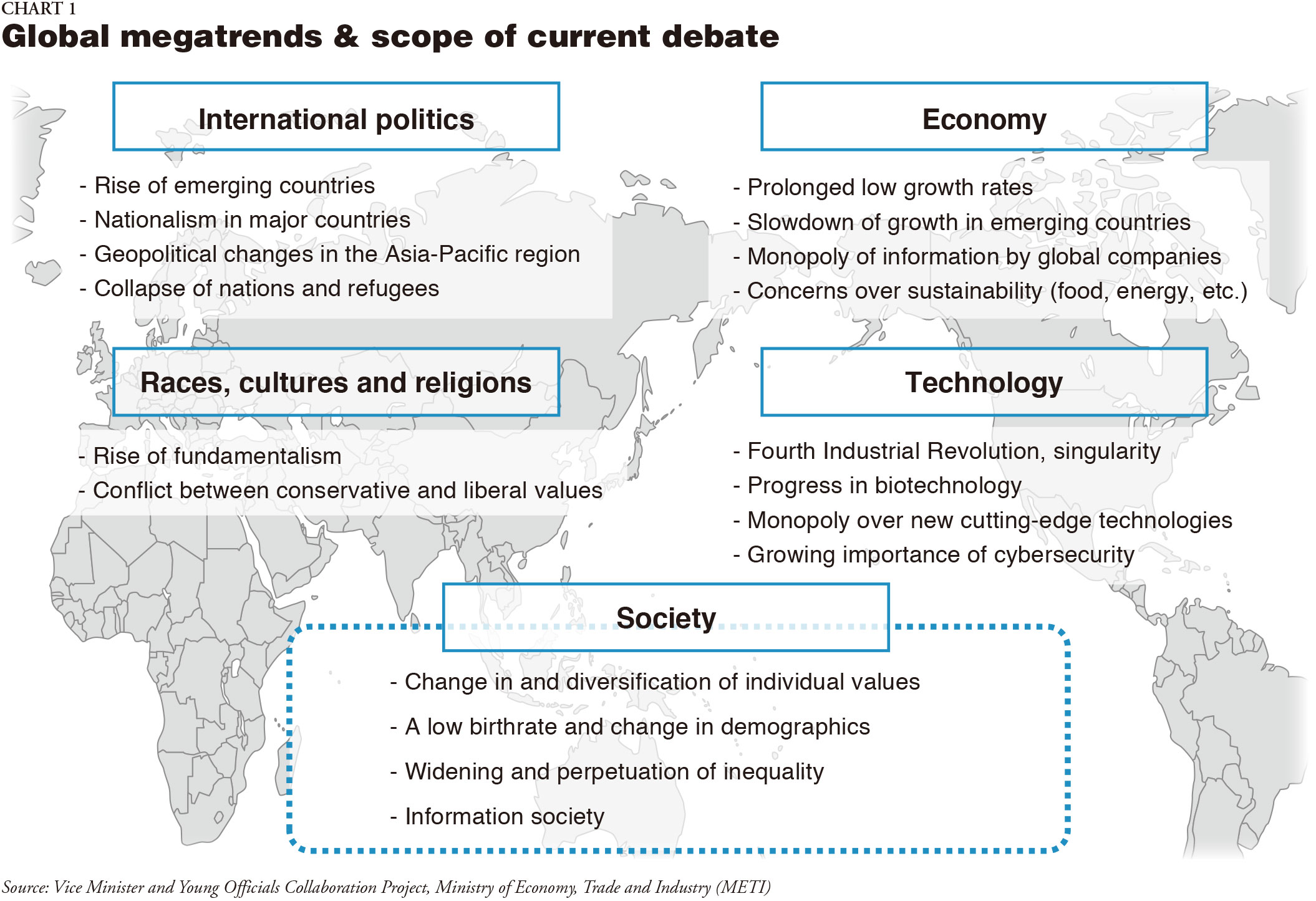
So Japanese society is moving from being organization-centered to individual-centered. Young people are free but they will increasingly need to take risks on their own and thus will feel anxious about their unpredictable future. Could you give us your comments on this observation in the report which I think is an essential part of it?
Ito: We note today that a talented individual could earn lots of money as in the case of successful entrepreneurs or a genius hacker who could threaten the international order. We are certainly living in an individual-centered society rather than an organization-centered one even in Japan. But it will indeed make people feel anxious about the future that an individual can have so many options in going through life.
Enomoto: I think this part of the report won great sympathy among the public in Japan. One of the reasons is that it focused on what many Japanese youth had been feeling in their heart.
Hidaka: The report stressed the need to promote institutional reform in Japan in order to meet the change in values among young people. Social institutions such as providing a safety net for entrepreneurs or a social welfare system ensuring an individual's security or reforms of working style to support an individual preference for self-realization are not well established yet in Japan in responding to such changes in values. The report strongly advocated for the need for structural reform in Japan. We should create "orderly freedom" in which an individual can take risks in his or her own choices by institutional and structural reforms of economic society. This is how, I believe, we can build up our own life by ourselves without depending on any authority.
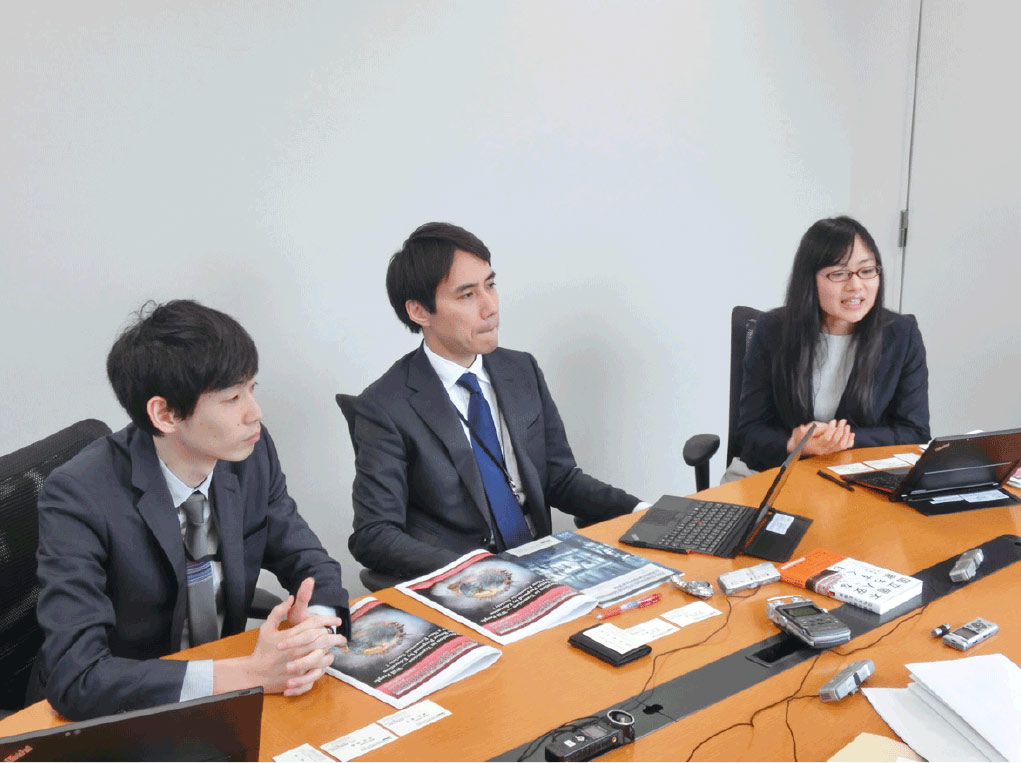
Reforms to Achieve "Orderly Freedom"
JS: What kind of institutional reforms do you think are necessary to achieve "orderly freedom"?
Hidaka: The report mentions three things as necessary reforms. Firstly, we would need to create a social environment in Japan where elderly people even beyond retirement age can continue to work and contribute to society instead of being taken care of by others. Secondly, we should invest more in education. And finally, the many challenges we face would need to be resolved not only by the government but also by individuals endowed with passion and competency.
Enomoto: I think individuals should change their preconceptions about seniority or the way they work. As we live much longer today than people of earlier generations, we should have our own life plan after retirement. I also wish we could have a safety net for failures to encourage young people to start up businesses or any new project.
Ito: It seems that our Japanese management and employment system is no longer successful. But we haven't found yet a new system that can mitigate our anxiety over this collapse. The uniqueness of our project, I believe, is in proposing that the public think about a solution together with us. This is different from the Japanese bureaucrats' approach so far, which was always to provide solutions by themselves. We were happy to see so many readers of our report agree to collaborate with us in finding solutions, and I would like to continue to encourage such collaboration.
JS: Japanese bureaucrats today have been working well with NPOs or NGOs in pursuing policy goals. This is pretty much different from the old style of governance.
Hidaka: Yes. As people's needs are increasingly diversified, the national government alone would not be able to respond to each need specifically. Therefore, NPOs or social businesses are expected to fill the gap between these needs and the government's capacity. So I believe a good partnership between the government and NPOs will be key to enhancing our governance capacity.
Mitigating Poverty
JS: Another important issue in this report is poverty. The poverty of single-mother families, non-permanent employees or the cycle of poverty (Chart 2) should be central to mitigating individuals' anxiety in Japan. But the Japanese government is at a standstill due to its increasing debt. Instead of increasing support for poor families, the government is now trying to reform working styles in favor of workers' interests. What do you think about these issues related to increasing poverty in Japan?
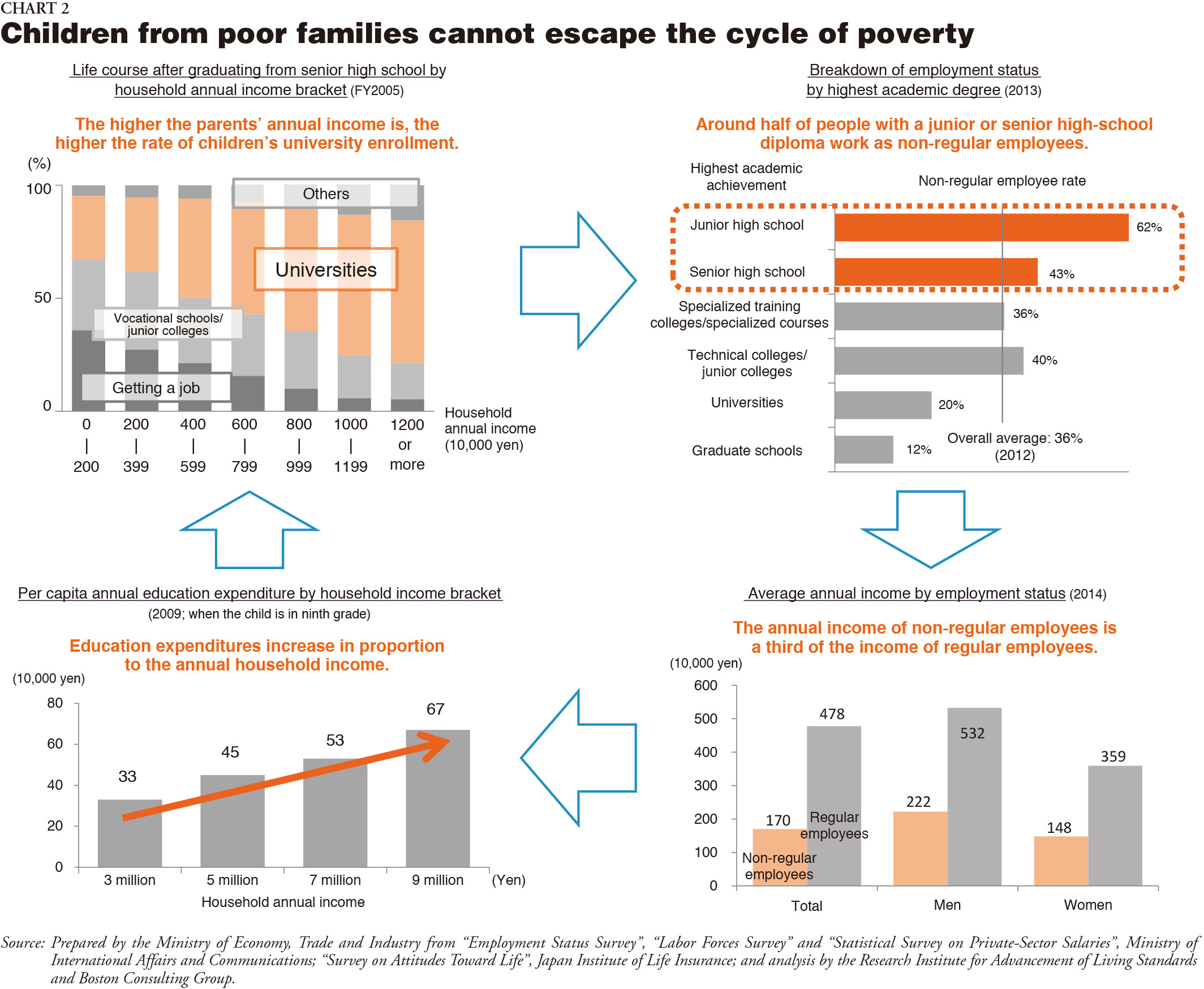
Ito: The question of income inequality in Japan has always been discussed only in the context of the elderly poor. However, we found that single-mother households suffer from poverty most significantly. We also found the cycle of poverty as you mentioned. That is the most serious issue in the case of poverty in Japan. A single mother starts working, but in many cases she cannot work full-time because she has to take care of her kids at home as well. So she has to choose a non-permanent job, but the salary in this job is lower than otherwise. The low income will not enable her to let her kids continue to study at a university or other advanced educational institutes. Children ending their academic career at junior or senior high-school will find it difficult to get a well-paid job. This cycle of poverty needs to be cut off by some structural reform, like the introduction of a salary system based on job performance rather than working time, so that working single mothers can be paid better.
As for the elderly poor, in the light of the increasing financial burden to pay for their pensions in line with their longer lifespans, we should encourage them to work longer, for example, until the age of 75. Many elderly people in Japan are today very eager to work longer as their good health is also prolonged. By providing them with suitable working venues, they would be happy to work and then the budget for pensions would be reduced and the financial burden on the young generation would be less.
Hidaka: When we ask the elderly at a nursing care facility what they want to do most, they answer that they would like to work, even for any short time whenever their physical condition is good. This shows us how important it is for a human being to work and earn money and thus be convinced that they contribute to others. The current system of setting a retirement age seems even to deprive the elderly of their reason for living. Without a fixed retirement age, the elderly can live a more proactive life.
Enomoto: Japanese society should accept the diversity of individual values. On the question of the poverty of divorced single mothers with children, I guess there is still a prejudiced view in Japan that single mothers should be responsible for their life after divorce, as divorce would be their choice. But I guess it will be necessary for society to be ready to support their individual choice without any preconceptions, such as that divorce is the wrong option and socially unacceptable. Preconceptions about age should be eliminated as well. Without such a culture denying the diversity of views, I believe that we could live a more proactive life.
JS: There is another preconception concerning job security in Japan. While most Japanese youth seek self-realization in their job, Japanese labor practices among business firms care only about job security. This is another area where we would need an institutional reform to meet the needs of the labor side. Employers and employees should conclude a job contract specifying the types of jobs to be done and specific requirements on the employers' side so that employees will be able to choose a job after judging whether it would be consistent with their goal of self-realization. If either side finds the concluded contract is not favorable to either of their interests, then after negotiation between the two the contract could be ended. In other words, if employees find the job not useful for their self-realization, they can quit, and if employers are not happy with the employees' performance, they can fire them after consultation. This is how we could gauge high individual value.
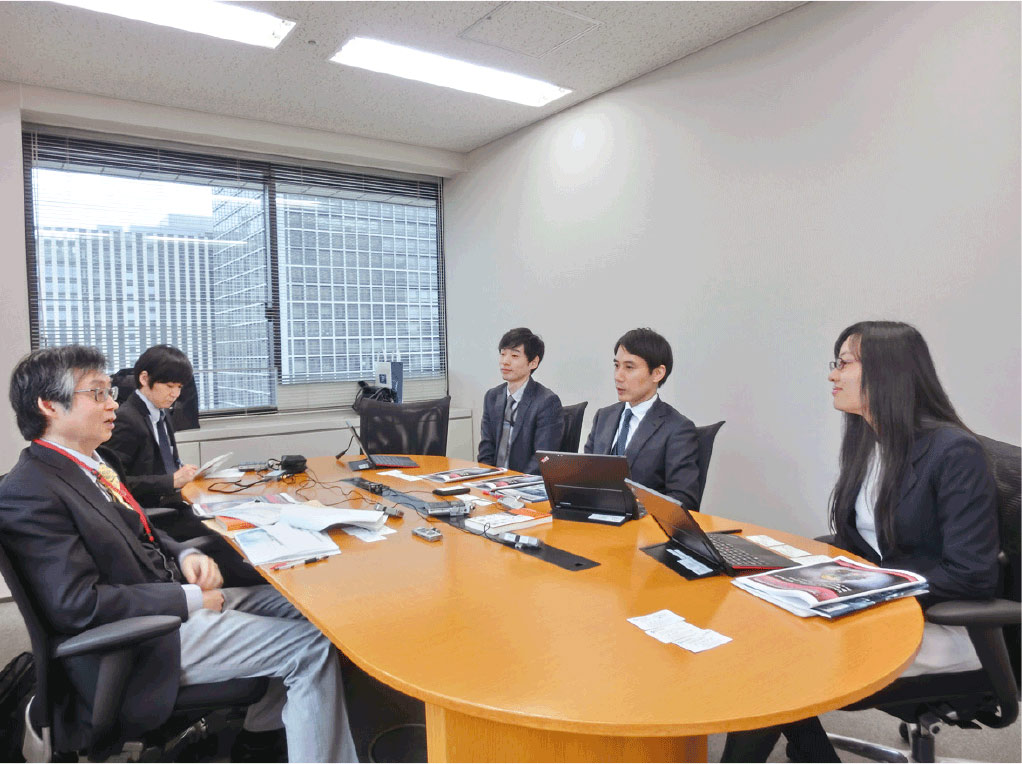
Hidaka: Yes, that is certainly a desirable direction for institutional reform to clarify an individual's responsibility and jurisdiction and thus enhance transparency. I think an institutional reform in general would meet with resistance from groups with vested interests in the existing system. For example, in the case of regulatory reform of dismissal legislation to enhance labor mobility by easing requirements for dismissal, male permanent employees would strongly oppose it. As our economy today faces an extremely rapid change of industrial structure and to respond to such a high-speed transformation of industries, we would need to have more labor mobility, but this holistic optimum is not necessarily corresponding to a specific group's optimum. Pursuing specific optimum would not lead to overall optimum; this is a fallacy of composition, according to economic theory, and we often find it.
Ito: I think it will be important to create a good working environment for working people. A job contract would be one of the tools to achieve it.
Innovation & Education
JS: What would be the best education for stimulating innovation? This is another core question covered by the report. As we live in the era of the Fourth Industrial Revolution, education is important not only for creating innovation but also for turning the workforce to jobs that cannot be replaced by AI or IoT. What do you think?
Hidaka: I think what is most important for future education in Japan is to raise individuals who can think and act on their own without simply following their teachers' instructions. In a Japanese school, we still keep a tradition of group-oriented activity. All the students are expected to follow a teacher's instructions unanimously. They have been raised to adjust themselves to life in a group and they are not expected to think and act independently. But without thinking and acting on their own, it would be difficult to initiate innovation. We will need human resources in the era of innovation who can discover issues and work on resolving them by themselves. I would assume those human resources should know exactly what they would like to do and then they could discover the issues to be resolved by themselves. AI would not be able to do this. AI could replace jobs that require less intelligence, but human beings could do more creative jobs such as finding issues to be resolved in business, the economy, and the community where they are living. We should spend the time saved by the efficient work of AI on creative activities. So I think education should be shifted in the future towards raising the capacity for independent thinking and acting. In achieving this, it might be better for a school teacher to take the students outside a classroom so that they can have contact with the real life of business or cultural activities, instead of just learning from a textbook in a classroom. Customized education in accordance with the diversity of academic performance would be preferable as well in order to raise each student's creativity.
Final Comments
JS: Could you tell us finally what you would like to stress in this report or continue to explore further hereafter?
Hidaka: This project was an unprecedented attempt by government officials and a good experience for me. Encouraged by this, I would like to continue to work on discovering new values. Without changes born from new values, we will not be able to evolve.
Ito: I think individuals' attempts to solve social problems are important and to increase such attempts we should change the Japanese education system as Mr. Hidaka said. I would like to contribute to changing it and solve social problems as well with those who have passion and competency.
Enomoto: We should accept diversity of opinions as well as diversity of people. I also believe that we should be more generous about failures such as those in start-up businesses.
JS: Japan might be now in a transition period and people may suffer from anxiety about the uncertainty of the future. However, as the report says, individuals are doing their best in all areas to pursue a proactive life and mitigate their anxieties.
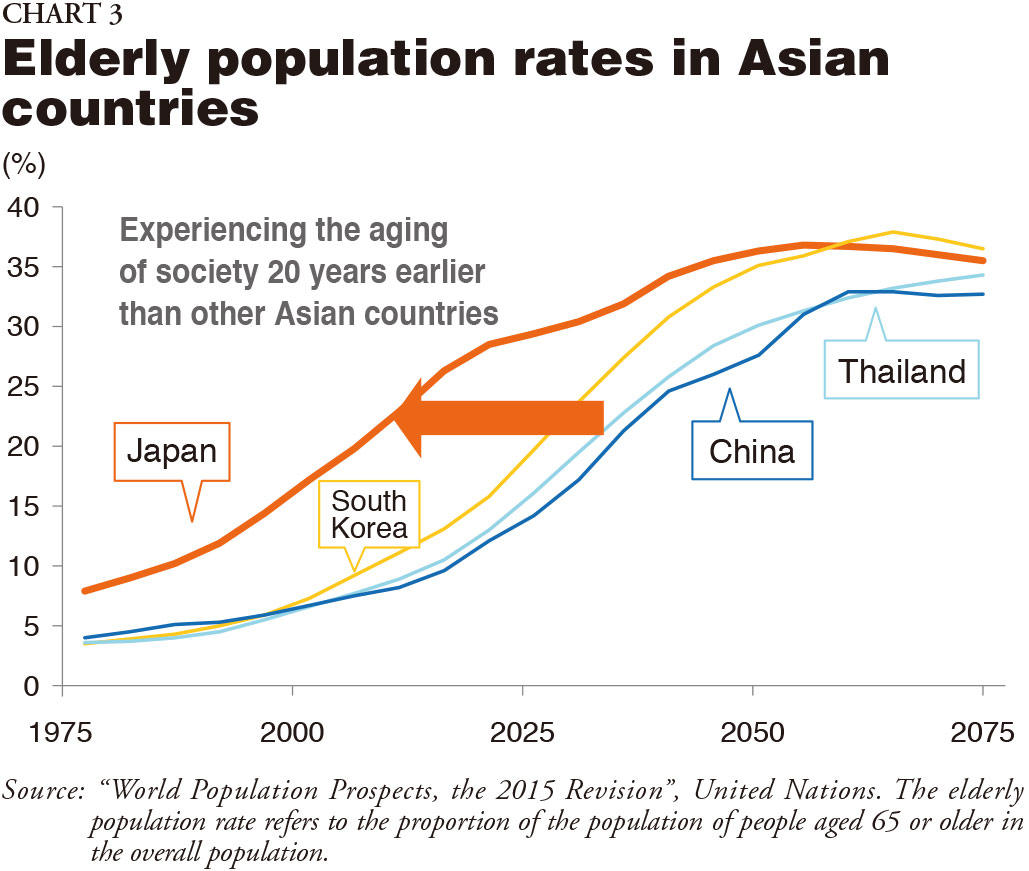
Hidaka: Finally, Japan is a pioneering country in aging among Asian nations (Chart 3). We are now working on creating a successful model for an aging society. This is an example of our pursuit of a proactive life. I hope our model can be a good reference point for other Asians in the future.
Japan SPOTLIGHT May/June 2018 Issue
(2018/05/14)
Japan SPOTLIGHT
Written with the assistance of TapeRewrite Corporation

Japan SPOTLIGHT

- Coffee Cultures of Japan & India
- 2025/01/27
























